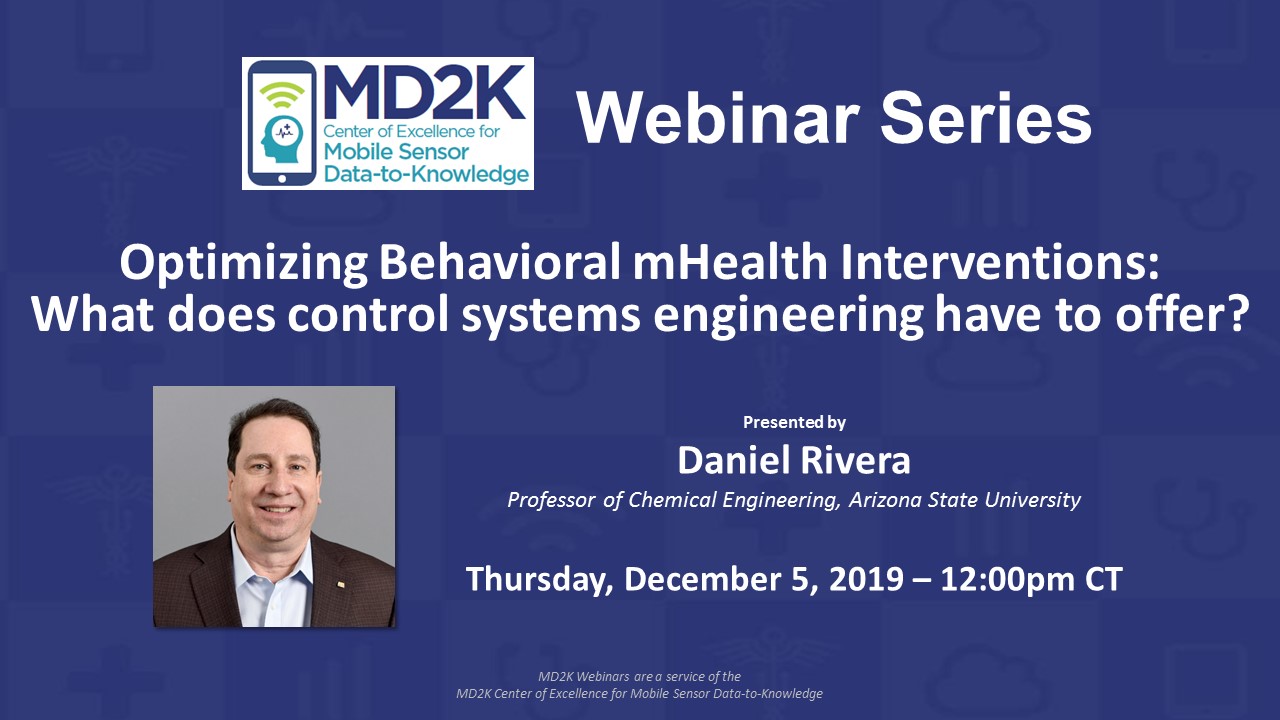Title: Optimizing Behavioral mHealth Interventions: What Does Control Systems Engineering Have To Offer?
Presenters: Dr. Daniel Rivera
Presented: December 5, 2019
Link: https://youtu.be/jSoXKlQwX8Y
About the presentation: The last decade has witnessed an increasing interest in applying systems science concepts for problems in behavioral medicine, and using these to inform the design, analysis, and implementation of optimized interventions. Among these approaches lies control systems engineering, which is the field that relies on adjusting system variables over time to improve targeted outcomes. How can the technology that is responsible for cruise control in automobiles, the home thermostat, and the artificial pancreas be useful in mHealth intervention settings, such as increasing physical activity, accomplishing smoking cessation, or reducing obesity? This will be demonstrated in the talk through a series of diverse examples, culminating in a description of the Control Optimization Trial (COT) and Just Walk, an intervention to promote walking in sedentary adults designed on the basis of control engineering principles.

About the presenter: Daniel E. Rivera is professor of chemical engineering in the School for Engineering of Matter, Transport, and Energy (SEMTE) at Arizona State University in Tempe, Arizona. He received a B.S. degree in chemical engineering from the University of Rochester, M.S. degree in chemical engineering from the University of Wisconsin-Madison, and Ph.D. in chemical engineering from the California Institute of Technology in Pasadena, California. Prior to joining ASU he was a member of the Control Systems Section of Shell Development Company in Houston, Texas. His research interests span the topics of dynamic modeling using system identification, robust process control, and applications of control engineering to problems in supply chain management and behavioral medicine. In 2007 he was awarded a K25 Mentored Quantitative Research Career Development Award from the National Institute on Drug Abuse to examine how dynamical systems and control engineering approaches can be used to optimize interventions for the prevention and treatment of drug abuse.


